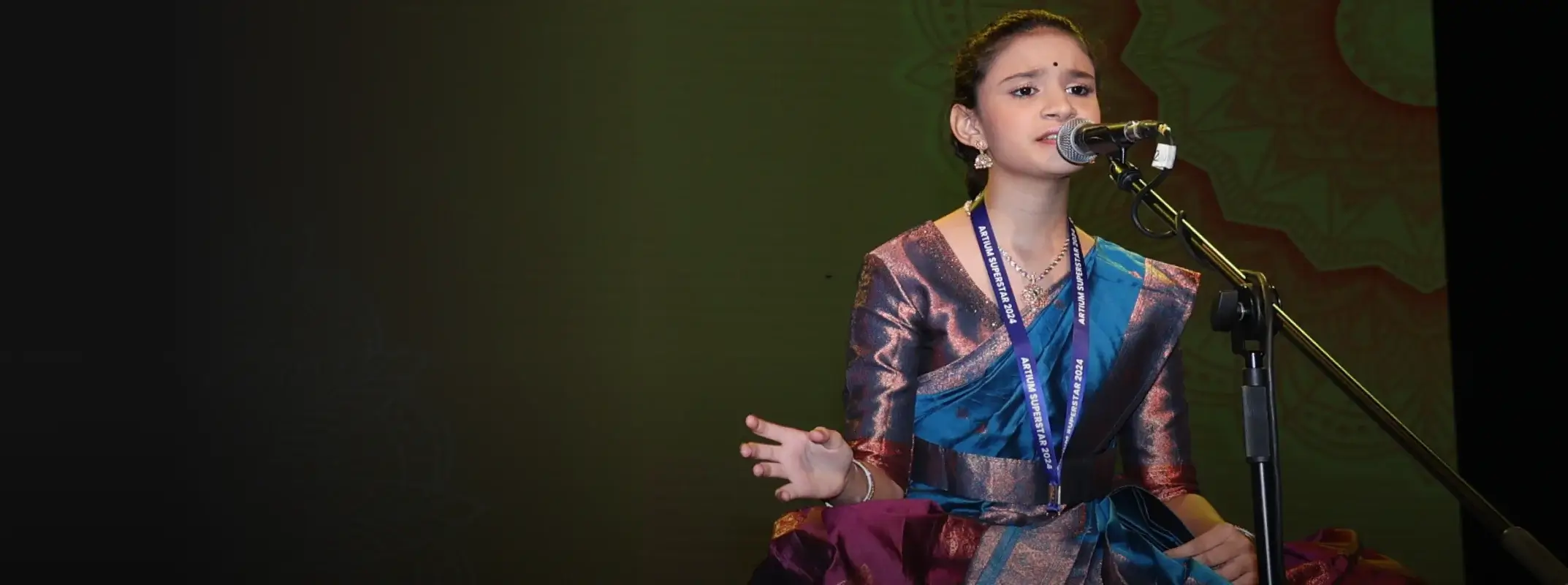
Learn Carnatic Music Online
Unlock your potential with 1:1 Online Carnatic music lessons, tailored to help you master the music at your own pace.
Why Learn Carnatic Music Online with Us?

1:1 Personalised Classes
To ensure you get the best out of your music education, we have carefully developed our 1:1 Carnatic music classes that are tailor-made to your preferences.

Comprehensive Music Learning
Our Carnatic music classes cover fundamentals like Ragas, Talas, Varnams, Kritis, Bhajans and more. You’ll learn the basics and understand the nuances of this genre, thus helping you achieve your musical dreams.

Maestro-led Expert Faculty
Our Carnatic music lessons online are designed and certified by the legendary Mrs Aruna Sairam. Under her expertise, we have handpicked certified Carnatic music teachers to help you reach your musical potential.
About Our Carnatic Music Classes
Trusted by 30,000+ Students across 25 countries
See how learning Carnatic music has helped students achieve their musical dreams.
How Online Carnatic Singing Classes Work at Artium
Still unsure? Let us resolve those doubts!
Schedule a FREE trial session and let our teachers solve all your queries.
Course Designed And Certified By
Smt. Aruna Sairam
Artium Academy Faculty Head - Online Carnatic Music Course
At Artium Academy, we are privileged to have the legendary, multi-award-winning Carnatic singer, Padma Shri Aruna Sairam, as the head of the faculty for our online Carnatic singing course. With decades of experience in classical singing, Arunaji has personally designed and certified our Carnatic music lessons.
Her experience in Carnatic music and the curriculum certified by her has helped thousands of students worldwide.
Experienced Dedicated Teachers
Providing a qualitative music education is our top priority. Hence, every Artium teacher must undergo a rigorous 5-step evaluation process that aids us in selecting the most qualified teachers for you.
Personalised Learning Plans
To ensure a smooth learning experience, we customise our lessons based on your skills and abilities. Every lesson is designed to ensure you’re learning at a pace that is comfortable to you.
Flexible Scheduling
Worry not about missing class or falling behind in your lessons. You can easily schedule your lessons at your convenience. Our online Carnatic singing course lets you take singing lessons anytime, anywhere.